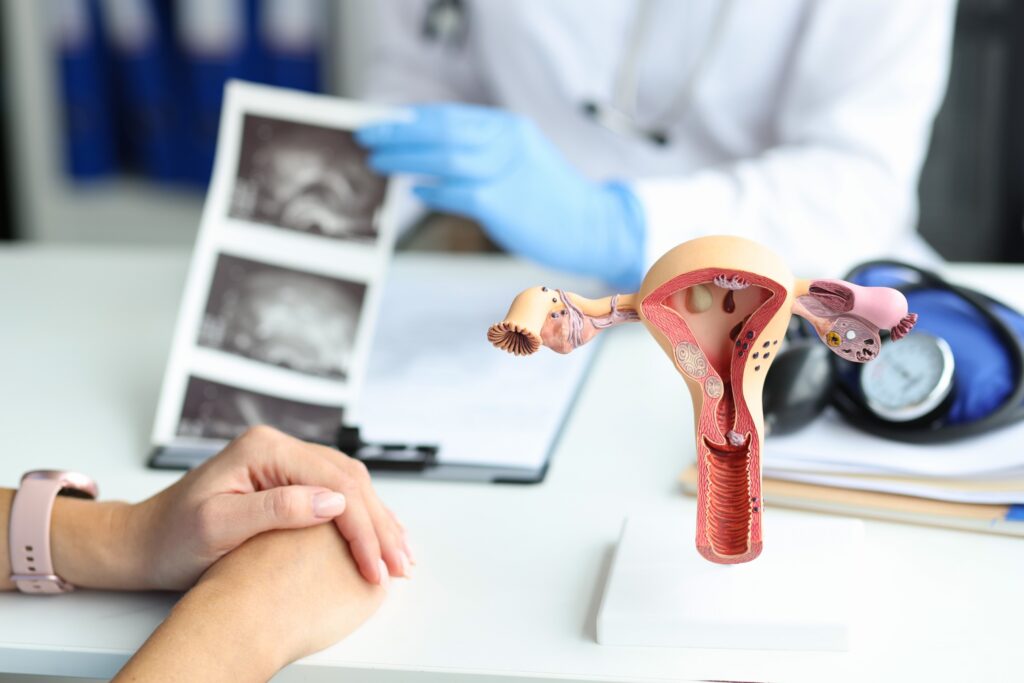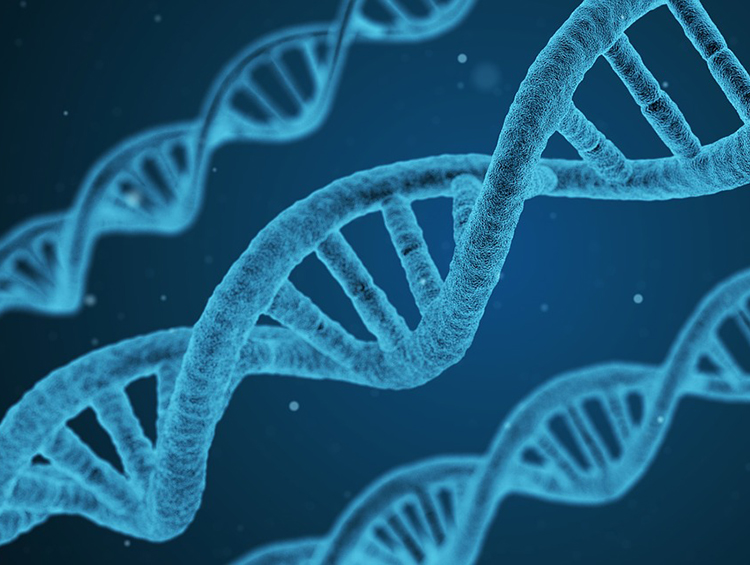Several studies suggest that adenomyosis has a negative impact on women’s fertility; however, a direct relationship is yet to be proven. It is a condition that affects approximately one in ten women. Eighty percent of adenomyosis cases are diagnosed in women aged 40 to 50, with only 20% occurring in younger women.
The increasing age of women seeking fertility treatments results in a more frequent diagnosis of this condition. Suspicion should also arise, especially in women experiencing implantation failures and/or repeated miscarriages.
What is Adenomyosis?
Adenomyosis is a benign condition that affects the uterus and is characterized by the presence of endometrial tissue in the uterine wall (myometrium).
Adenomyosis foci or cysts respond to hormones in the same way as normal endometrial tissue, growing throughout the menstrual cycle and bleeding during menstruation, causing alterations in the uterine wall.
How Does Adenomyosis Originate?
The origin of the disease is unknown, but the most accepted theory suggests that adenomyosis originates from the invagination of the base of the endometrium into the myometrium. According to a second theory, endometrial cells penetrate the myometrium through the lymphatic system.
The risk of adenomyosis increases in cases of endometrial hyperplasia, the presence of endometriosis, smoking, a high number of children or miscarriages, or uterine surgical trauma such as curettages or cesarean sections.
What Symptoms Does Adenomyosis Cause?
The most characteristic symptoms of adenomyosis are pain during menstruation and heavy menstrual bleeding. It can also be associated with pain during sexual intercourse. However, adenomyosis is asymptomatic in approximately 30% of cases.
How is Adenomyosis Diagnosed?
Adenomyosis is diagnosed through transvaginal ultrasound or magnetic resonance imaging. It can appear in a focal form, in a delimited area (adenomyomas), or it can be diffuse, occupying a significant part of the uterine wall, causing thickening without defined borders. This diffuse form is the most common, and an enlarged or globular uterus is often observed, or one uterine wall (anterior or posterior) is thicker than the other.
How Does Adenomyosis Affect Fertility?
The mechanism is unknown, but several studies suggest that adenomyosis affects the embryo implantation process, alters uterine contractility, and the utero-tubal progression of sperm. It may also generate chronic inflammation of the myometrium and excessive local estrogen production.
Some authors find that in fertility treatments, adenomyosis decreases the likelihood of pregnancy by about 30% and doubles the risk of miscarriage. However, several in vitro fertilization studies have found a decrease in the probability of pregnancy per patient but not necessarily per treatment cycle.
An interesting study on adenomyosis patients undergoing egg donation detected a decrease in the probability of having a live-born child (compared to patients without the disease), reinforcing the idea that adenomyosis creates a problem with embryo implantation.
Adenomyosis has also been associated with pregnancy complications, with a higher risk of preeclampsia, premature birth, cesarean section, and postpartum hemorrhage.
How is Adenomyosis Treated?
To treat pain during menstruation, adenomyosis is treated with drugs that prevent menstruation, such as continuous contraceptives, progestins, or GnRH agonists. GnRH agonists have been studied and described to decrease the size of adenomyosis, associated inflammation, and provide clear symptom improvement and reduction of uterine size.
When a woman seeks pregnancy through in vitro fertilization, this can be done with fresh embryo transfer, knowing that the likelihood of term pregnancy may be decreased. Recent studies suggest an alternative of undergoing in vitro fertilization and freezing oocytes or embryos for embryo transfer after 3 months of GnRH agonist treatment.
In conclusion, it is essential to inform the patient adequately about the effect of adenomyosis on fertility, explaining that the estimation of this effect is still imprecise, and its discovery should be integrated with other variables that may impact the success of treatment.
If you are considering becoming a mother and are concerned about adenomyosis, we offer a first free and non-committal consultation. You can schedule an appointment through our website, by calling 917401690, or via WhatsApp at 650132422. Consultations can be in person or via video call. We will be delighted to help you!












